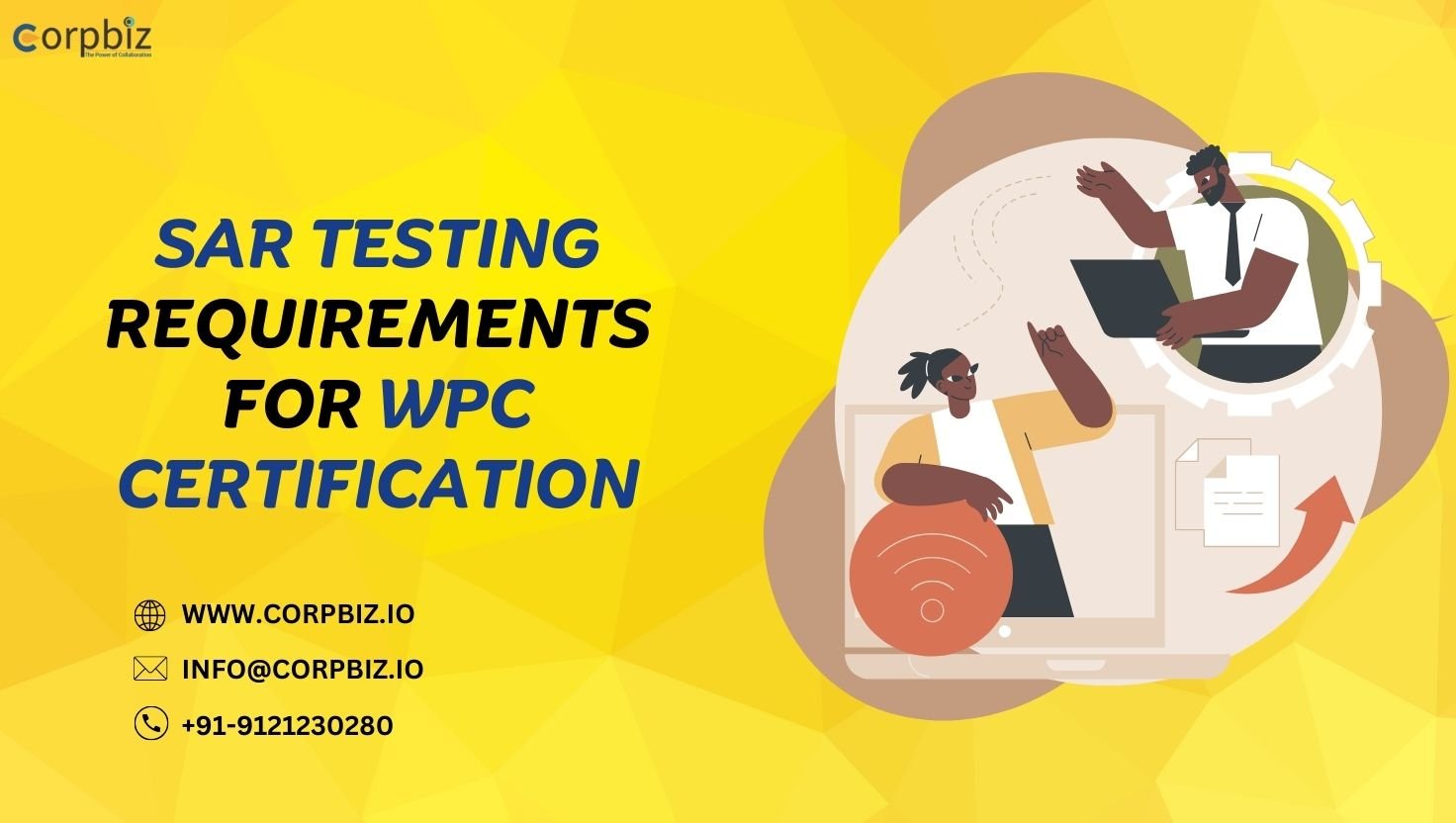In today’s technology-driven world, wireless communication devices have become an integral part of our lives. However, before these devices reach the market, they must comply with specific regulatory standards to ensure public safety and smooth operation. One such crucial requirement in India is the WPC Certification, which includes SAR (Specific Absorption Rate) testing for certain devices. If you’re an entrepreneur or a startup looking to launch your wireless device, understanding SAR testing and its role in obtaining WPC ETA Registration is vital.
Let’s dive into the details to help you navigate this process seamlessly.
What is SAR Testing?
SAR, or Specific Absorption Rate, measures the rate at which the human body absorbs radiofrequency energy when exposed to a wireless device. This test ensures that the device’s electromagnetic radiation is within safe limits as prescribed by international and national standards.
SAR testing is mandatory for wireless devices that are held close to the human body, such as mobile phones, tablets, and other communication devices. It’s a crucial part of the WPC Certification process, ensuring that your device complies with safety standards before it enters the market.
Importance of SAR Testing in WPC Certification
The Wireless Planning and Coordination (WPC) wing of the Department of Telecommunications in India mandates SAR testing for wireless devices. Without this test, your device cannot receive WPC eta registration, which is essential to legally sell wireless products in India.
Here’s why SAR testing is significant:
- Compliance with Safety Standards: SAR testing ensures your device meets safety regulations, protecting users from harmful radiation.
- Market Approval: Passing the SAR test is a prerequisite for WPC Registration Online, allowing you to market your product in India legally.
- Consumer Trust: A certified product builds credibility and trust among consumers.
Steps to Obtain WPC Certification with SAR Testing
Let’s break down the process of obtaining WPC ETA Registration for your wireless device:
1. Understand Your Device Requirements
First, determine whether your device requires SAR testing. Devices such as mobile phones, tablets, and wearables generally fall under this category.
2. Choose a Reliable SAR Testing Laboratory
Select a government-approved or accredited lab to conduct SAR testing. Ensure the lab provides a detailed report that complies with WPC’s standards.
3. Apply for WPC ETA Registration
Once your SAR test is complete, submit your application for WPC Certification through the online portal. This step involves uploading documents, including the SAR test report, technical specifications, and other relevant information.
4. Wait for Approval
After submission, the WPC will review your application. If everything is in order, you’ll receive the WPC Registration Online, granting you the license to market your product.
Role of the TEC Certificate in the Certification Process
The Telecommunication Engineering Centre (TEC) also plays a vital role in certifying telecom products. While SAR testing is specific to WPC Certification, some devices may also require a TEC Certificate to ensure compliance with additional technical standards.
Why is the TEC Certificate Important?
- Ensures compatibility with India’s telecom network.
- Verifies the technical performance of your device.
- Strengthens your compliance profile when combined with WPC Certification.
If you’re unsure whether your product needs TEC certification, consulting with a TEC Certificate Consultant can simplify the process and save time.
Tips for Startups and Entrepreneurs
For startups and entrepreneurs entering the Indian market, navigating regulatory requirements can seem daunting. Here are some practical tips to make the process smoother:
- Understand the Regulatory Framework: Research and identify all certifications your device requires, including WPC Certification and TEC Certificate Registration.
- Partner with Experts: Working with a TEC Certificate Consultant or a professional familiar with WPC Registration Online can help streamline the process.
- Plan Ahead: Certification processes, including SAR testing, can take time. Factor this into your product launch timeline.
- Maintain Documentation: Keep all your technical documents, test reports, and certifications organized for easy access during audits or renewals.
Benefits of Obtaining WPC Certification
Achieving WPC ETA Registration and completing SAR testing offers several benefits to your business:
- Legal Compliance: Operate your business without the risk of penalties or legal issues.
- Market Expansion: Enter India’s vast and growing wireless device market with confidence.
- Consumer Confidence: Certified devices are more likely to gain consumer trust, giving you a competitive edge.
FAQs on SAR Testing and WPC Certification
1. What is the validity of WPC ETA Registration?
WPC ETA Registration is typically valid for a lifetime. However, you must ensure that the certified product’s technical specifications remain unchanged.
2. Is SAR testing required for all wireless devices?
No, SAR testing is primarily required for devices that operate close to the human body, such as mobile phones and wearables. Devices like routers or Bluetooth speakers may not require SAR testing.
3. Can startups handle WPC Certification and TEC Registration without a consultant?
While it’s possible to handle the process independently, hiring a TEC Certificate Consultant or WPC expert can save time and reduce the chances of errors, ensuring a smoother experience.
By understanding SAR testing and its role in WPC Certification, you can confidently take the necessary steps to bring your wireless device to the Indian market. With careful planning and the right support, navigating the certification process can become a hassle-free experience for entrepreneurs and startups like us.
Source: https://oddlyz.com/understanding-sar-testing-requirements-for-wpc-certification/
